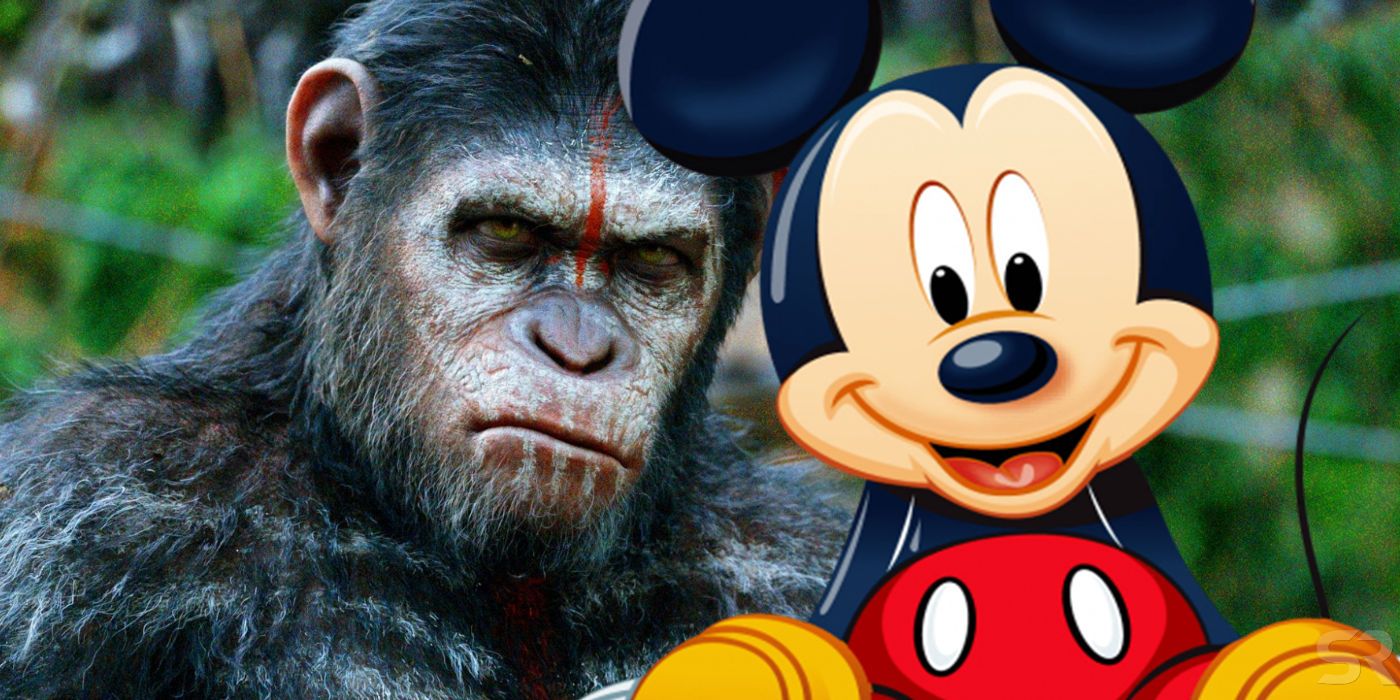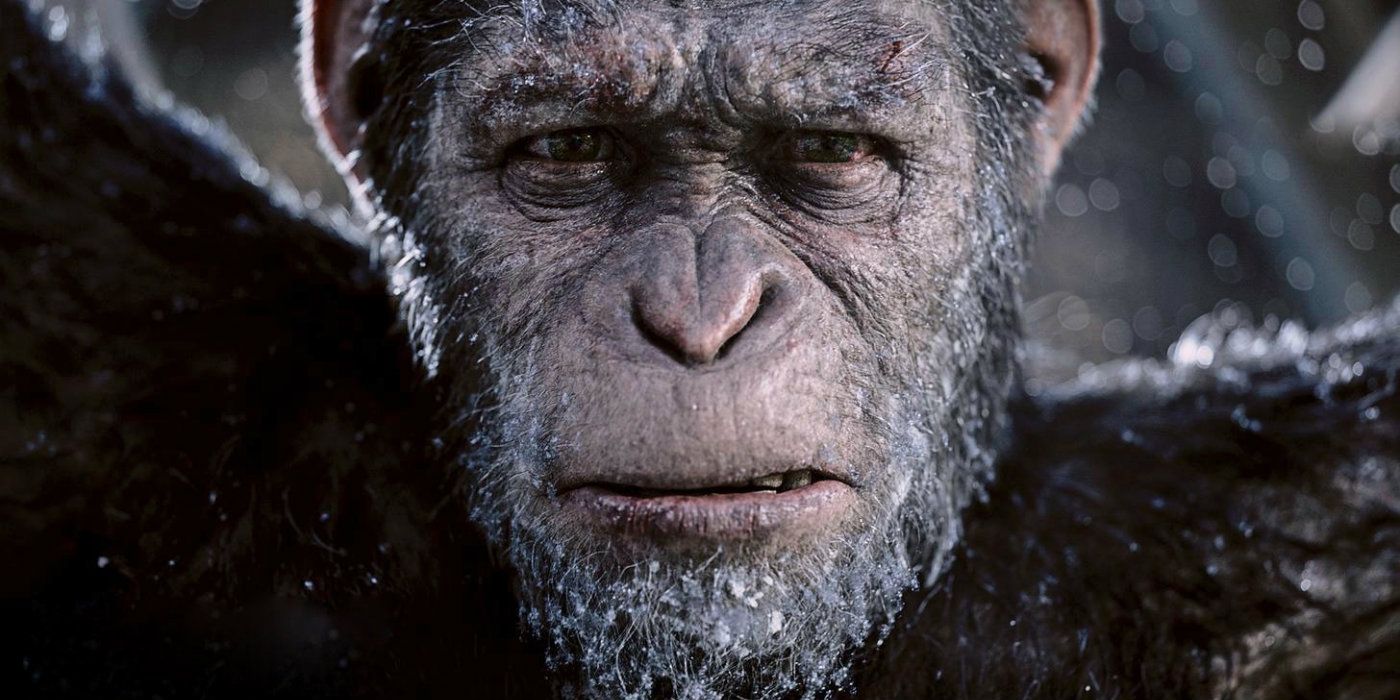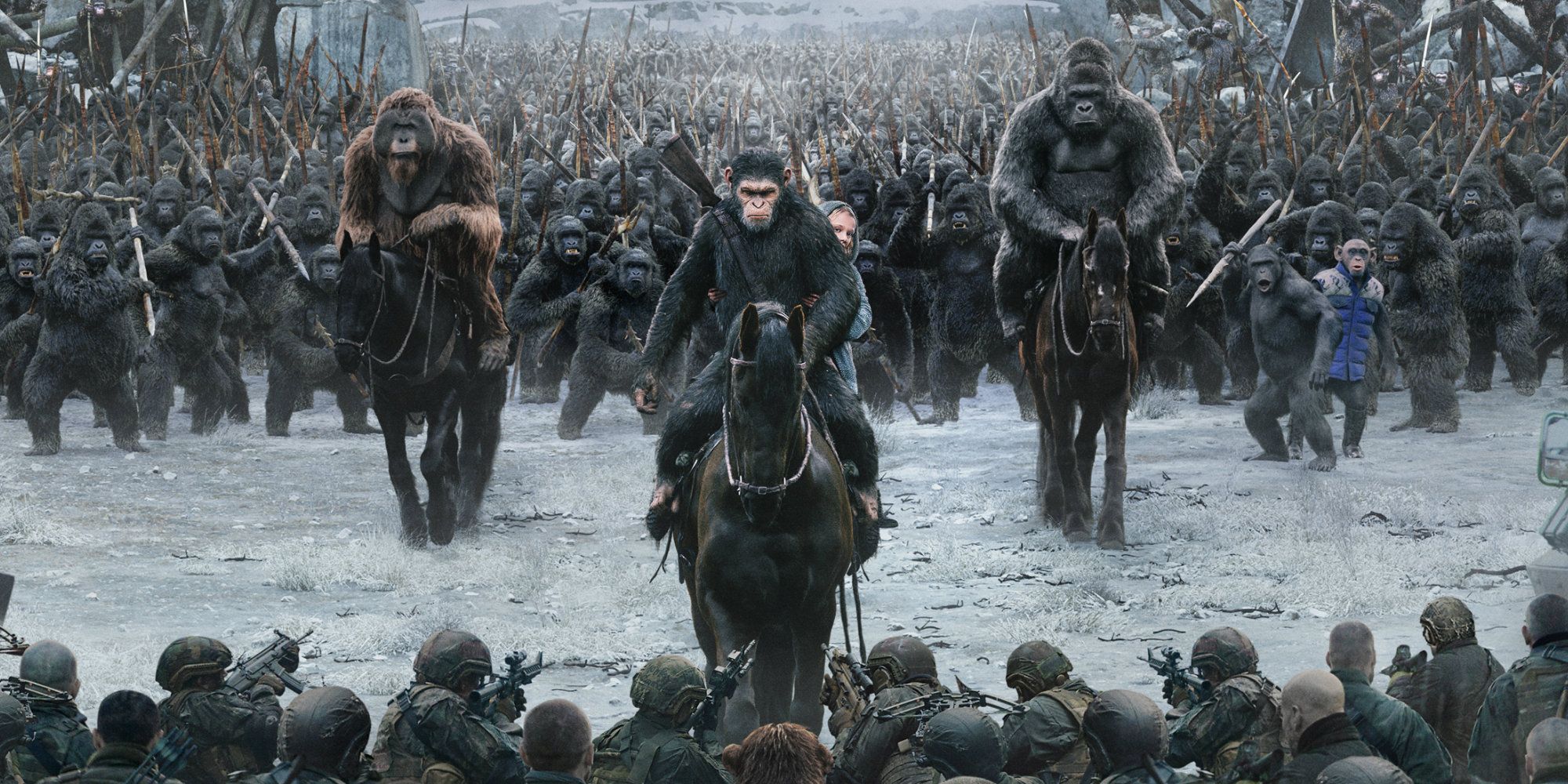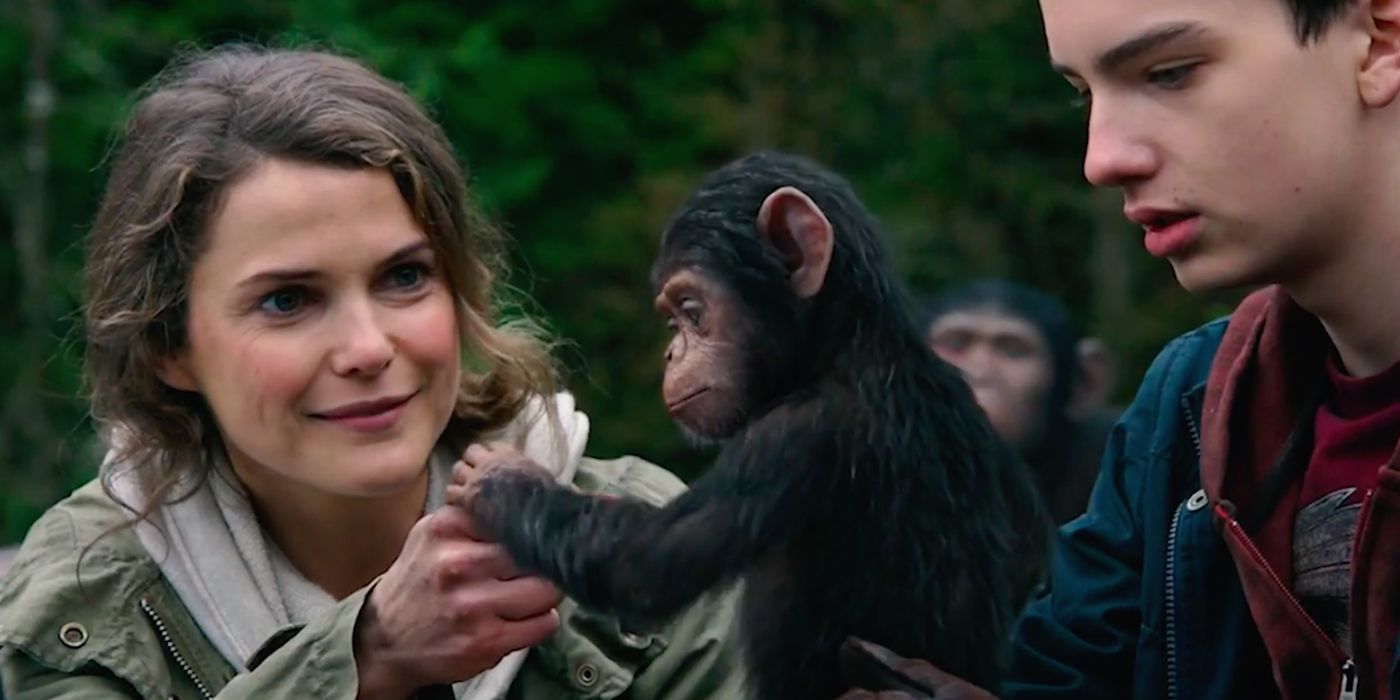
Disney acquired 20th Century Fox in March 2019, and has since announced its plans to continue Fox's highly-successful Planet of the Apes trilogy; however, it remains unclear if the project(s) in development will be a continuation of the trilogy or a reboot. Caesar's story ended so well in War for the Planet of the Apes, the last instalment of the PotA franchise, that it would be difficult for writers to continue the story. However, a reboot so fresh on the heels of the last series is not a good idea either — audiences are still invested in Caesar's world.
Fox released the first film in the trilogy, Rise of the Planet of the Apes, in 2011. The film was followed by two sequels, Dawn of the Planet of the Apes in 2014, and War for the Planet of the Apes in 2017. All three films were critical and financial successes, earning for their studio ticket sales and a slew of award nominations and wins. Given how well the trilogy performed, it makes sense that new parent-company Disney would want to continue the franchise. The problem is simply finding a way to keep the momentum going.
Related: Planet Of The Apes: All Movie Timelines Explained
The first film in the trilogy, Rise, is a reboot of Fox's highly-successful franchise, which began with the original film Planet of the Apes in 1968, and includes several sequel films (released in the first half of the 1970s) and even an animated TV series (1975). The studio previously attempted to reboot the franchise with the 2001 film Planet of the Apes, directed by Tim Burton. Despite the film's star-studded cast, which includes Mark Wahlberg, Tim Roth, and Helena Bonham Carter, the film received mixed reviews from critics. Although the film performed well financially, its disappointing critical reception is likely why the studio did not produce a sequel. Instead, the series was rebooted a decade later via 2011's Rise.

The rebooted Planet of the Apes series is in many ways Caesar's story. Caesar had quite the personal journey from Rise to War; the intelligent evolved chimpanzee was the first of his kind, led the Ape Army, and was a key figure in the Ape Rebellion. Over the course of three films, the character aged, found a life partner, and even fathered children. He witnessed the rise of his species, their subsequent struggle to co-exist, and their eventual liberation. It's a complete story arch.
War for the Planet of the Apes ends with Caesar's death; although he is gravely wounded, the patriarch dies peacefully because he has the satisfaction of knowing that his people have finally found their home. The nature of this ending makes it difficult to imagine what a sequel in this universe would look like: with Caesar dead, he would no longer be the story's centre; furthermore, any attempt to disturb the peace established at the end of War would be a slap-in-face to Caesar's journey, and may upset fans of the series.

The recent Planet of the Apes trilogy has made a huge impact on popular culture — too big, in fact, for the film to be rebooted so soon after the last film. The original Planet of the Apes, released in 1968, was an adaptation of the 1963 french novel La Planète des singes (The Planet of the Apes/Monkeys) by Pierre Boulle. The resulting franchise petered out by the mid-1970s, and a remake was not attempted until 2001; thus, 25 years elapsed between the 1975 animated series and the Tim Burton remake. Even though Burton's film was technically financially successful, its lacklustre critical reception discouraged Fox from making a sequel, and as a result, the film's popular culture impact was minor.
Caesar's Planet of the Apes trilogy, on the other hand, has had a massive influence on popular culture. In addition to the three main films, the franchise produced various tie-in media like video games and toys. The impressive visual effects of the films are instantly-recognizable; in fact, the realistic design of Caesar and his simian brethren is responsible for many of the series' award nominations. Any reboot will be compared to the visual style of the previous iteration, which is still very much present within the public imagination.

If Disney can't effectively reboot the series, and if the Caesar's story has reached its natural conclusion, then what's next for the Planet of the Apes franchise? One option is to explore other storylines within Fox's series, such as the Icarus space mission mentioned in Rise of the Planet of the Apes. Dawn is set ten years after the events of Rise — surely, there must be stories from that time period that could be told. For starters, the exact fate of Caesar's former human caregiver Will Rodman (played by James Franco in Rise) is never depicted in the films.
Another option would be for the fourth movie to be set in the far future, as the original film is. The recent Planet of the Apes films are all set in a contemporary settings; a whole new trilogy could explore Caesar's legacy, generations after the events of War. Do humans eventually die out? Will the Apes start to build their own technology? When do they start to wear pants? Inquiring minds want to know!
The upcoming Disney project will be spearheaded by Wes Ball, who directed the Maze Runner trilogy. Whatever direction Ball takes the franchise — a reboot or a sequel — it's sure to be exciting.
from ScreenRant - Feed https://ift.tt/33LLJfn

0 comments:
Post a Comment